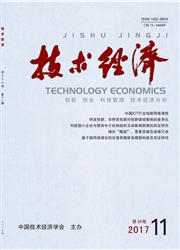

 中文摘要:
中文摘要:
贝叶斯学习模型被认为是传统优化学习模型,本文从个体学习行为角度切入,基于贝叶斯法则构建一个个体在有限策略集中进行决策的一般性行为调整模型,并针对城镇住宅小区内的资源配置,来解释业主群体在维权模式过程中的经验积累和认知演化过程。在明确的法制制度下,如果辅以行为个体的认知理解,则可以更好的给出政策建议:法律实施重在社会成员的信念调整,这是本文另一个主旨。
 英文摘要:
英文摘要:
With the development of the real estate in our country, the numbers of owners' rights and interest disputes are increasing. Facing the rising industry, people are unfamiliar with the rules of its development and scarce of its management experience. As a result, many problems appear in the relevant laws and regulations to different extent. Based on the individuals' behaviors, the paper analyses the owners' options between different safeguarding ways with Bayesian Adaptive Rhythm model. Studying individual's knowledge accumulation and cognition advancement, it aims at suggesting how to deal with this kind of problems and perfect the real estate market.
 同期刊论文项目
同期刊论文项目
 同项目期刊论文
同项目期刊论文
 期刊信息
期刊信息
